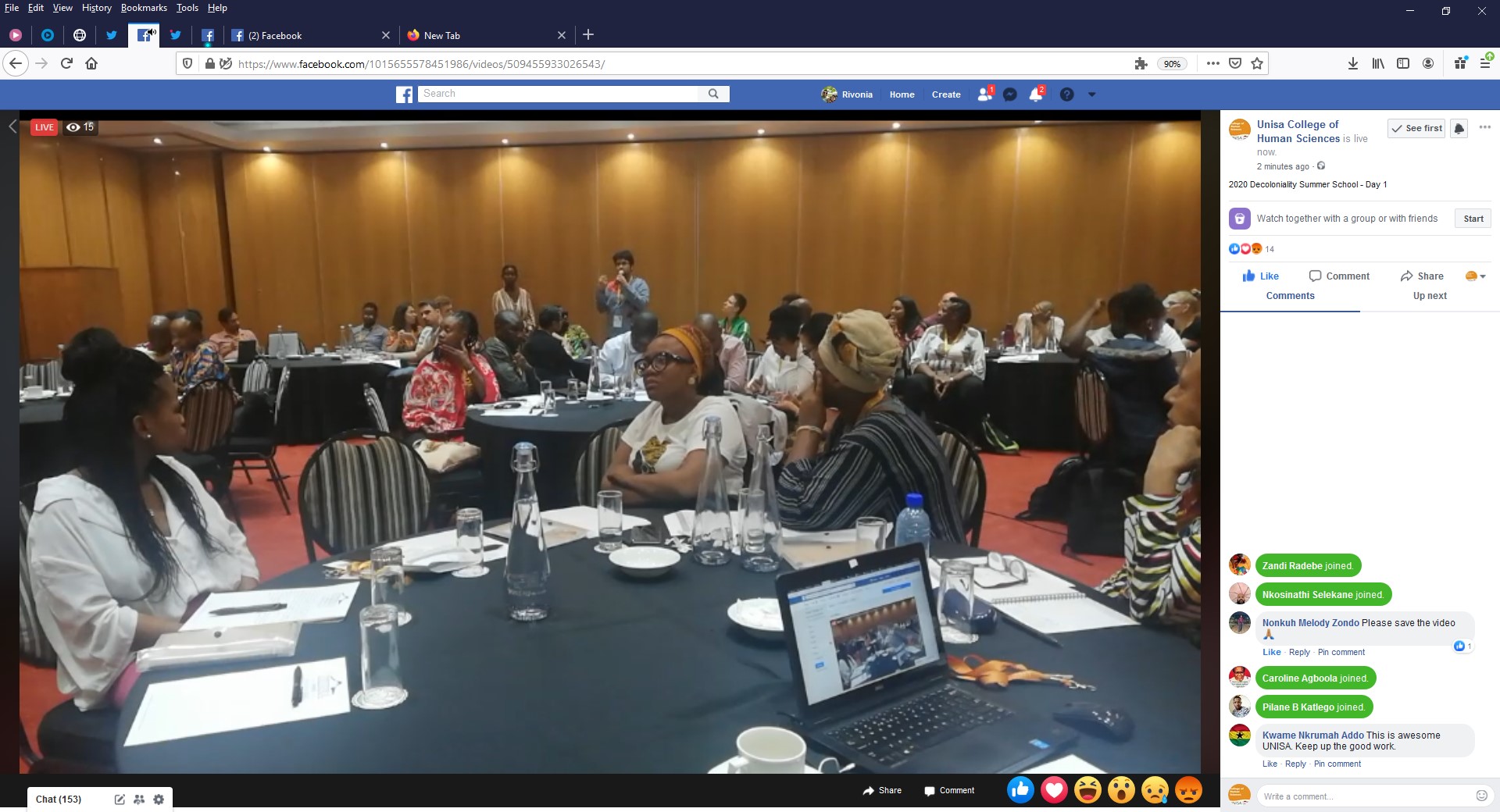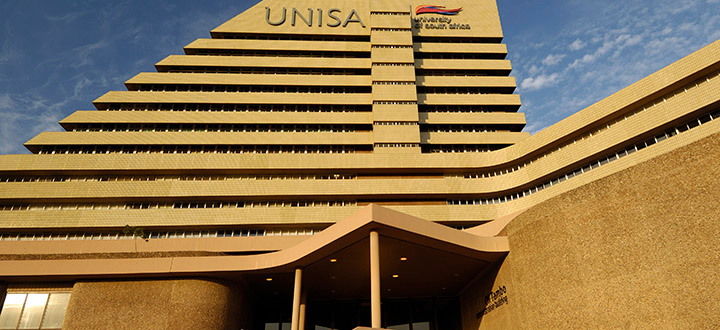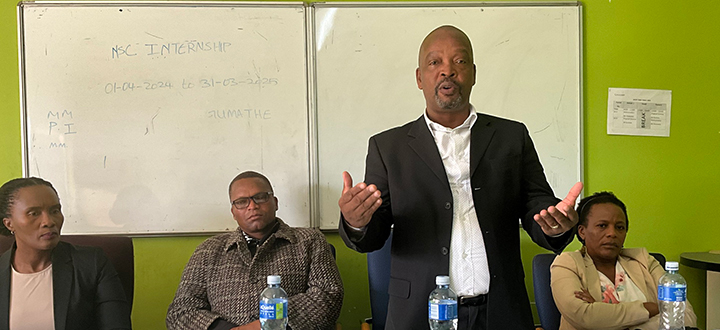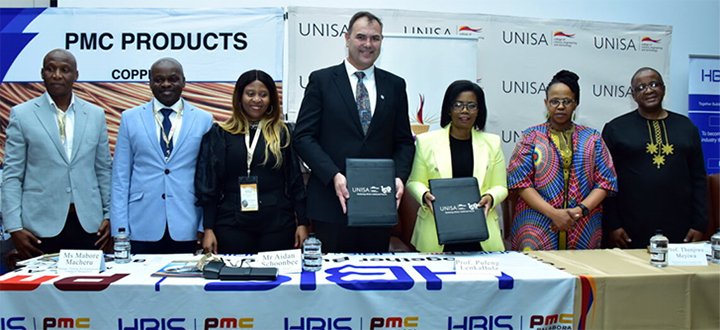College of Human Sciences
Interrogating colonial ideas
Unisa’s College of Human Sciences (CHS) is currently hosting its seventh Decoloniality Summer School which seeks to interrogate power, knowledge and being, and to find answers on what de-colonisation truly means for South Africa and Africa.
Speaking at the opening, where he welcomed delegates from around the word, newly appointed Executive Dean for the College of Human Sciences, Professor Kgomotso Masemola, said: “Today we are rethinking and reconfiguring the knowledge space, we are ushering in a new way of thinking which has primarily been colonial … Many colonial ideas are going to be tested during this summer school as all speakers are going to interrogate several lenses that address ontological and political questions of power, knowledge and being.”
The lectures and discussions will be delivered and facilitated by leading decolonial thinkers and theorists from the continent and across the globe. These include, Professor Lewis Gordon (University of Connecticut, USA), Professor Mogobe Ramose (University of South Africa), Professor Rozena Maart (University of KwaZulu-Natal, South Africa), Dr Nandera Mhando (University of Dar-es-Salaam, Tanzania), Dr Sayan Dey (Royal University of Bhutan, India), and Chachu Maligissu (University of Dar-es-Salaam, Tanzania).
Some of the topics that will be covered by these presenters include, Important Distinctions and the Problems They Generate: African, black, and Black, Being and Existence; Charity and Decolonization: Faith Based Organizations and ‘Safe’ Houses; Critical Gender in Indigenous Practices: Navigating Language and Meanings; The humanisation (mothofatso) of the educational curriculum; Black Aesthetics, Black Value, and Challenges of Liberation and Political Life; and Who is the decolonial subject?
The CHS has been a leader in decolonial education, teaching and learning and community engagement long before movements such as #RhodesMustFall surfaced. As project leader, Professor Puleng Segalo explains, to decolonise is to confront, challenge and reject the status quo, and the College decoloniality project came about as a result of many of scholars feeling suffocated within the various spaces they occupy. As academics, students, and activists, they decided to ‘speak back’.
Conversations on decoloniality officially started in 2011 under the umbrella of the Africa Decolonial Research Network (ADERN) which consisted of scholars who were tired of the status quo within academic spaces. The Network organised readings groups, seminars and a visit to Barcelona where they attended a Summer School on Decoloniality. The network grew and the College of Human Sciences initiated the first Summer School on Decoloniality in 2013. The aim was to create a space for scholars to engage with issues of epistemological violence within the academic sphere; a form of violence which ultimately bleeds into the broader society.
All the issues that have surfaced in the country in the past few years have also pointed to the need for engagement, confrontation, cost accounting, and responsibility taking. To this end, the Unisa decoloniality project aims at allowing an opportunity for the interrogation of what it means to be human from the subject that speaks, and engaging in uncomfortable conversations about what it would mean if we were to see each other as human and not falling into different categories of humanity.
“Decolonisation is not an arrival, but a historical ongoing process which engages imperialism and persistent colonial tendencies at multiple levels. We call for the acknowledgement of people’s agency, identity, language, history, and ethics, from their own vantage points. We call for the space to breathe,” says Professor Segalo.
The summer school runs for week until 17 January 2020, and is also being live streamed via the Unisa College of Human Sciences Facebook page.
* By Rivonia Naidu-Hoffmeester (Communications and Marketing Specialist, College of Human Sciences)
Publish date: 2020-01-14 00:00:00.0


 Unisa remains anchored among the waves
Unisa remains anchored among the waves
 Inhlanyelo Hub explores sustainable tourism initiatives in Marico Biosphere Reserve
Inhlanyelo Hub explores sustainable tourism initiatives in Marico Biosphere Reserve
 Unisa KZN Region explores extending university services to KwaMpungose community
Unisa KZN Region explores extending university services to KwaMpungose community
 Unisa's catalytic niche areas provide industry-focused mining innovations
Unisa's catalytic niche areas provide industry-focused mining innovations